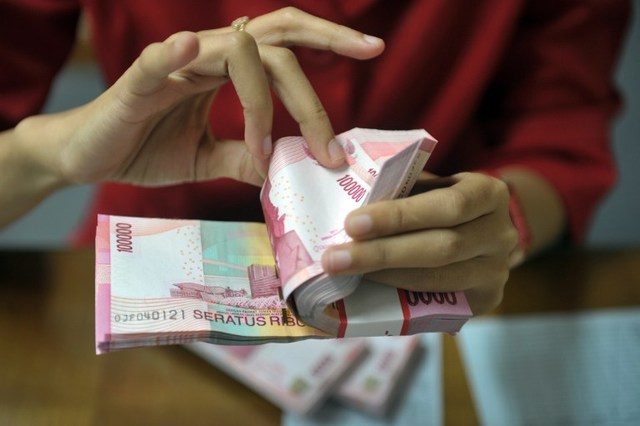SUMMARY
This is AI generated summarization, which may have errors. For context, always refer to the full article.

JAKARTA, Indonesia – Indonesia posted a higher-than-expected trade surplus of $1.13 billion in March, the fourth consecutive month that Southeast Asia’s biggest economy has recorded a surplus, official data showed Wednesday, April 15.
The positive run comes after years of Indonesia suffering from a negative trade balance dating back to 2012 (for details, you can see the data from Indonesia Ministry of Trade here).
Data showed that while both imports and exports fell sharply in March, the slowdown in imports was faster. March exports slipped 9.75% compared to a year ago, while imports fell 13.39%.
This led to the March surplus, which was about double the amount expected by economists. It compared to a surplus of $738.3 million in February.
Exports have been hit by a slowdown in demand for Indonesia’s key commodities due to rising inflation. (READ: Indonesian inflation picks up in March)
On the other hand, imports have fallen as the weakening rupiah made shipping goods into the country more expensive.
For the first quarter of the year, Indonesia has managed to post a trade surplus of $2.43 billion, with exports amounting to $39.13 billion and imports totalling $36.7 billion.
“Indonesia’s export volumes continue to rise despite the continued drop in the prices of commodities in the global market,” Central Statistics Agency (BPS) chief Suryamin said, according to Tempo.co.
Out of the 25 commodities monitored by BPS, only two saw an uptrend in prices – mineral fuels and animal fats.
Positive for rupiah
The trade surplus should help take pressure off the current account deficit for the first quarter of the year, and also the rupiah, said Bank Permata economist Josua Pardede.
The rupiah has suffered steep falls against the dollar in recent months as the US unit strengthens, igniting global depreciation to the other currencies which use USD as their benchmark.
Earlier this year, the rupiah had been breaching lows not seen since the Asian financial crisis 16 years ago. But it has rallied in recent weeks, helped by inflows into the nation’s stocks, Bloomberg reported. – with a report from Agence Frane-Presse/Rappler.com
Add a comment
How does this make you feel?
There are no comments yet. Add your comment to start the conversation.